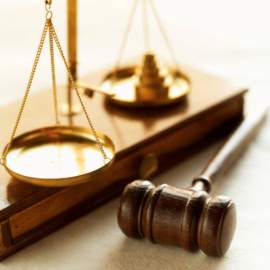
Investigation

The administrative process within the United States involves all three branches of the United States Government. Each branch has a necessary role to play as administrative laws need to be written, enforced, and judicially enforced or reviewed. The administrative process begins within the legislative branch, the United States Congress, with both the House of Representatives and the United States Senate taking part in the creation of administrative laws. This allows for all parties within the United States to be represented fairly in the administrative process. Moreover, the use of all three branches of government illustrates the separation of powers that the founding fathers were so intent on making sure took place within the United States. Administrative laws have to be developed by the legislator, and many times can undergo several revisions before they are signed into law by the President. Subsequently, the President, the whole executive branch at every level of government (Federal, state, and local) is responsible for enforcing administrative laws. This is a key part to the administrative process, as without the enforcement of laws there would be no teeth, allowing people to break the law without any fear of civil or criminal legal recourse. The executive branch is required to make sure every citizen is abiding by the laws in order for the citizenry to be protected. To a degree, thanks to the separation of powers, both the legislature and the judicial branches of government are responsible in making sure the executive branch carries out its duty to the American public. The executive branch accomplishes their Constitutional obligation through enforcement by varying forms of Federal oversight bodies and simple law enforcement. The next branch in the administrative process can either pop up at the end or during the middle of the administrative process as a whole. In the case of appearing at the end, it is after the executive branch has found a person, people, or company in violation of any administrative laws. It is then up to the judicial branch to determine truly whether or not the law was broken and what fine or criminal penalty will be issued against the party under question. However, the courts can play a role before the need to issue a ruling of guilt or innocence against an accused party. It is also the role of the courts in the administrative process to determine whether or not the administrative laws created by the legislature are constitutionally legal. At times the courts have found that laws do indeed violate the Constitution, therefore making the laws illegal. The courts, therefore, play a very large role in the administrative process. Within the United States the administrative process is one that is long and complex. Although complex, it is designed to afford the maximum amount of freedom and equality, while having internal checks against governmental abuses. The ultimate goal of the administrative process and the creation of administrative laws is to protect the average citizen against abuses that can be made against him.



















